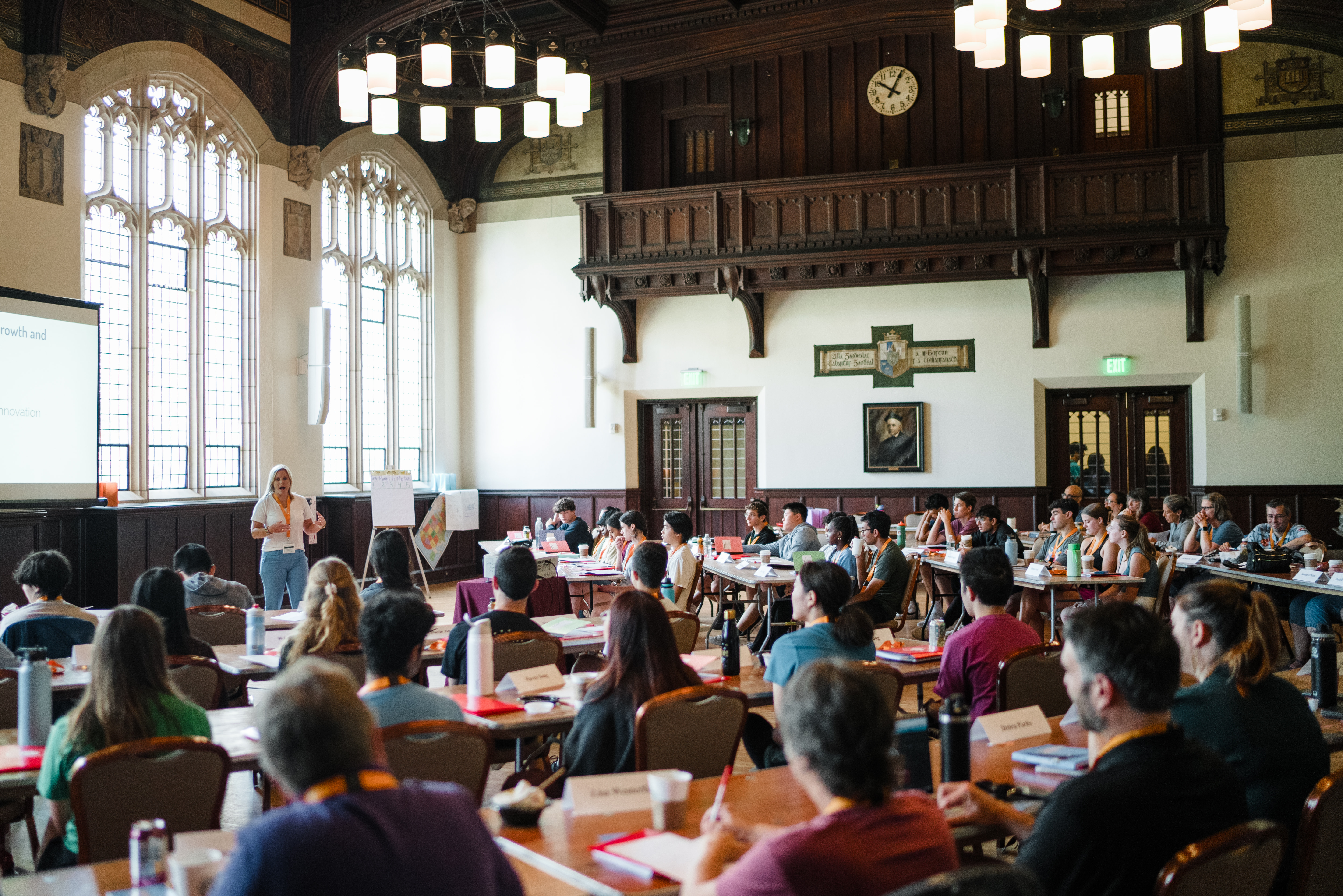Lesson 4 Activity: It’s Not Rocket Science

- >
- Teachers
- >
- Teacher Resources
- >
- Lesson Plans
- >
- Is Capitalism Good for the Poor?
- >
- Lesson 4 Activity: It’s…
Concepts
- incentives
- profit
- invention
- competition
- property rights
- innovation
Content Standards
This activity addresses parts of the following content standards in economics. Note that the lesson, in and of itself, is not sufficient to guarantee student proficiency in the identified standards.
Standard 4: People respond predictably to positive and negative incentives.
- Incentives can be monetary or non-monetary
- Acting as consumers, producers, workers, savers, investors, and citizens, people respond to incentives in order to allocate their scarce resources in ways that provide the highest possible returns to them.
Standard 9: Competition among sellers lowers costs and prices, and encourages producers to produce more of what consumers are willing and able to buy. Competition among buyers increases prices and allocates goods and services to those people who are willing and able to pay the most for them.
- The introduction of new products and production methods by entrepreneurs is an important form of competition, and is a source of technological progress and economic growth.
Standard 10: Institutions evolve in market economies to help individuals and groups accomplish their goals. . . . [C]learly defined and well enforced property rights [are] . . . essential to a market economy.
- Property rights . . . affect incentives for people to produce and exchange goods and services.
Standard 14: Entrepreneurs are people who take the risks of organizing productive resources to make goods and services. Profit is an important incentive that leads entrepreneurs to accept the risks of business failure.
- An invention is a new product. Innovation is the introduction of an invention into a use that has economic value.
- Entrepreneurs often are innovative. They attempt to solve problems by developing and marketing new or improved products.
Standard 15: Investment in factories, machinery, new technology, and the health, education, and training of people can raise future standards of living.
- The rate of productivity increase in an economy is strongly affected by the incentives that reward successful innovation and investments (in research and development, and in physical and human capital).
Introduction
History is replete with examples of societies in which genius spawned invention, but made no long-lasting impact on standards of living because the invention did not initiate the cascade of innovation that produces wealth. Innovation translates inventive genius into the production of goods and services that improve people’s lives. Throughout history, the nations that have been consistently able to innovate have been those in which the capitalist institutions of markets and property rights have flourished. Nations lacking markets and secure property rights also lack the incentives that make innovation-oriented research and development a routine component of modern production. In the 20th century, the Soviet Union stands out as an example of a society in which the genius of invention had no impact on the standard of living of the masses. A nation with a vaunted system of scientific education, a culture that admired and exalted scientists, and a government that patronized research with money and resources could only provide a per capita income of less than half that of the United States. The U.S.S.R. rocked the complacency of the West by leaping into space but because it lacked the incentives for innovation, it could not insure that its rural hospitals had sewers and hot water.
The mystery of the Soviet economy’s failure to thrive is solved by looking at its institutions. Without viable markets, there was no mechanism for discoveries generated by government-funded research to move into the consumer economy. There were no incentives for innovation to flower from the seeds of invention. In the West, on the other hand, even the results of government-funded research move rapidly into production as the possibility of profit motivates entrepreneurs to risk innovation. Profit proves to be such a strong incentive, in fact, that research flourishes even without government sponsorship and has become a major competitive activity for enterprise.
It’s Not Rocket Science is a series of three short exercises that can be taught independently, or in as a unit, in sequence. (All materials, including procedures, handouts, visuals, and teacher guide are included in the .doc download linked above.)
- Distinguishing Between Invention and Innovation contains a set of short readings taken from contemporary news sources. The articles and interpretation questions help students clearly distinguish between invention and innovation.
- If the Soviets Were So Smart, Why Weren’t They Rich? is a variation of the well-known economic mystery format. Student groups are given sets of clues comparing incentives, property rights, and profit in the Soviet Union and in the West. The challenge is to use all the clues to solve the mystery of why the Soviet standard of living never kept up with that of the Joneses in America.
- No More Slide Rules – The Costs and Benefits of Innovation is a research exercise that enhances the innovation lesson. Students investigate the age-old question of whether the social benefits of technological innovation are worth the cost — in this case, the lost jobs of slide rule makers. The slide rule study can be either an individual or group assignment. Some teachers may find that it to be an effective assessment after student groups have completed the readings lesson and solved the mystery.

Tell Our Elected Officials to Enroll in FTE Programs, Please!
January 30, 2026 Despite last-minute negotiations late this week, President Trump and congressional leaders appear to once again be on…

Foundation for Teaching Economics Opens Student Application for Summer 2026
January 12, 2026 The Foundation for Teaching Economics is pleased to announce that applications for Summer 2026 student programs are…

Making Economics Meaningful for Students
December 19, 2025 The Fund for American Studies’ Liberty and Leadership podcast features FTE’s own Amanda Stiglbauer, a longtime member of our…
